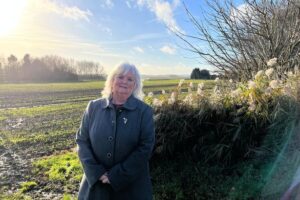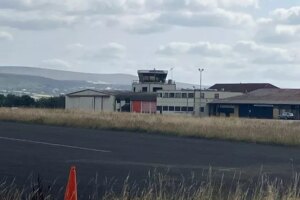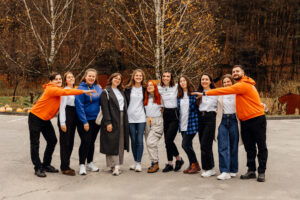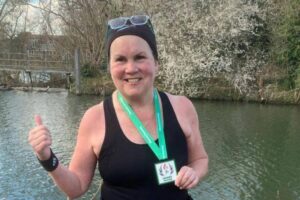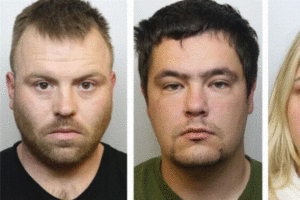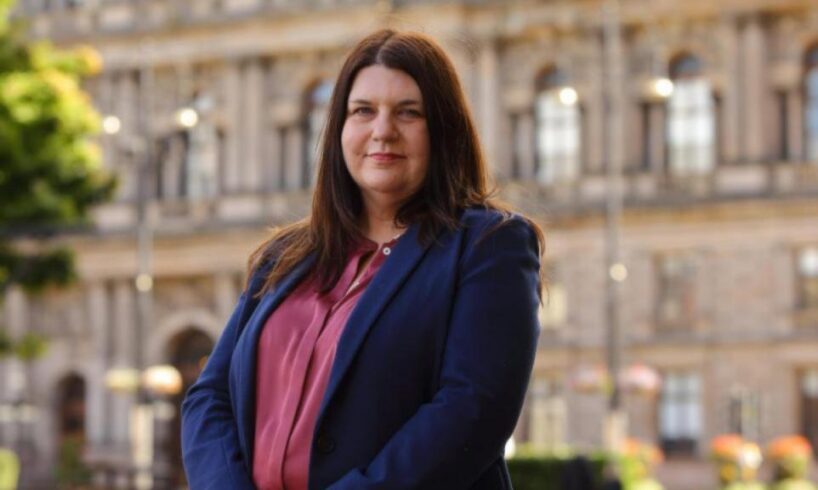
A former Carntyne care home was vandalised after unsubstantiated rumours spread that it would be used to house asylum speakers leaving residents “terrified.” And there have been reports of videos circulating online spreading disinformation in the city.
Councillor Susan Aitken claimed representatives of a certain political party have been spreading “toxic and racist lies.”
It is understood Councillor Aitken was referring to the Reform Party although she did not name them directly as she introduced her motion. The city’s Reform councillors accused the council leader of ‘attacking Glasgwegians who disagree with her views.’
She lodged a motion on Thursday at a council meeting describing it as “disgusting to suggest asylum seekers and refugees pose a threat to women and children through sexual crimes.”
It comes as she called for other councils to share the responsibility of housing refugees – with Glasgow being home to 90% of people settling in Scotland.
Speaking at Thursday’s full Glasgow City Council meeting, she said: “I want to say this very clearly – asylum seekers and refugees are welcome in Glasgow.
“They have been part of our communities for well over 20 years even before we were officially an asylum dispersal authority.”
More: Swinney ‘not persuaded’ of need for Scottish inquiry into grooming gangs
Claiming tensions and fears are being stoked, the SNP senior politician said: “Representatives of the most far right party to ever enter the UK’s political mainstream are on social media, in our communities and in elected institutions including this one deliberately spreading toxic and racist lies and not caring what damage it causes or who it causes it to.”
She said residents are “vulnerable to disinformation just now” citing how people’s living standards have fallen and the lack of enough housing in the city.
The council passed a unanimous motion yesterday to tackle disinformation and appeal to the Home Office, Mears and Police Scotland for help.
The motion called for a fairer distribution of responsibility for housing refugees among Scottish councils and more funds for affordable homes and the housing emergency.
More than 90% of all refugees and displaced people who have settled in Scotland have made Glasgow their home. The city is in the grip of a housing emergency with long lists of people waiting for social homes.
New homelessness applications in the city in April numbered 645. At the start of May there were 1,951 refugees in temporary accommodation among a total of 4,200 staying in the digs.
Refugees account for 44% of all homelessness applications, a recent Glasgow Integration Joint Board meeting heard.
In a motion, agreed by the whole council, Councillor Aitken condemned any politician “who seeks to target and scapegoat migrants as the cause of structural challenges within society, such as housing shortages.”
More: Staggering 98 per cent of Glasgow district nurses prepared to walk out
Fellow SNP councillor Declan Blench who seconded Councillor Aitken’s motion spoke of being at a community council full of people “terrified” of “misinformation” that former east end care home Alexandra Court could potentially host asylum seekers.
Reform councillors Thomas Kerr and Audrey Dempsey were at the meeting.
Issuing a statement, Councillor Kerr said, “Reform UK Councillors will take no part in Susan Aitken’s desperate attempt to attack Glaswegians who disagree with her view on illegal migration.”
Referring to high profile US conservative activist Charlie Kirk who was shot in the US this week, Councillor Kerr said: “We saw last night in America, the consequences of politicians using phrases like ‘far-right’ and ‘fascist’ to describe those they disagree with, the reality is the fight facing Glasgow is not between left and right, it’s between right and wrong.”
He added: “While they debate ‘misinformation’ and spread it themselves, Councillor Dempsey and I will get on with our jobs, representing the people of Glasgow.”
Among other measures the agreed motion calls on “both Scottish and UK Governments, working with COSLA, to develop a national dispersal strategy so that responsibility for asylum and refugee support is shared fairly across the country and not concentrated in Glasgow.”
It added: “Finally, council instructs the Leader of the Council to raise these matters formally with COSLA and both Scottish and UK Governments, and to report back to this chamber on progress.”
